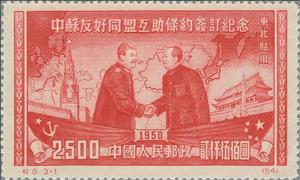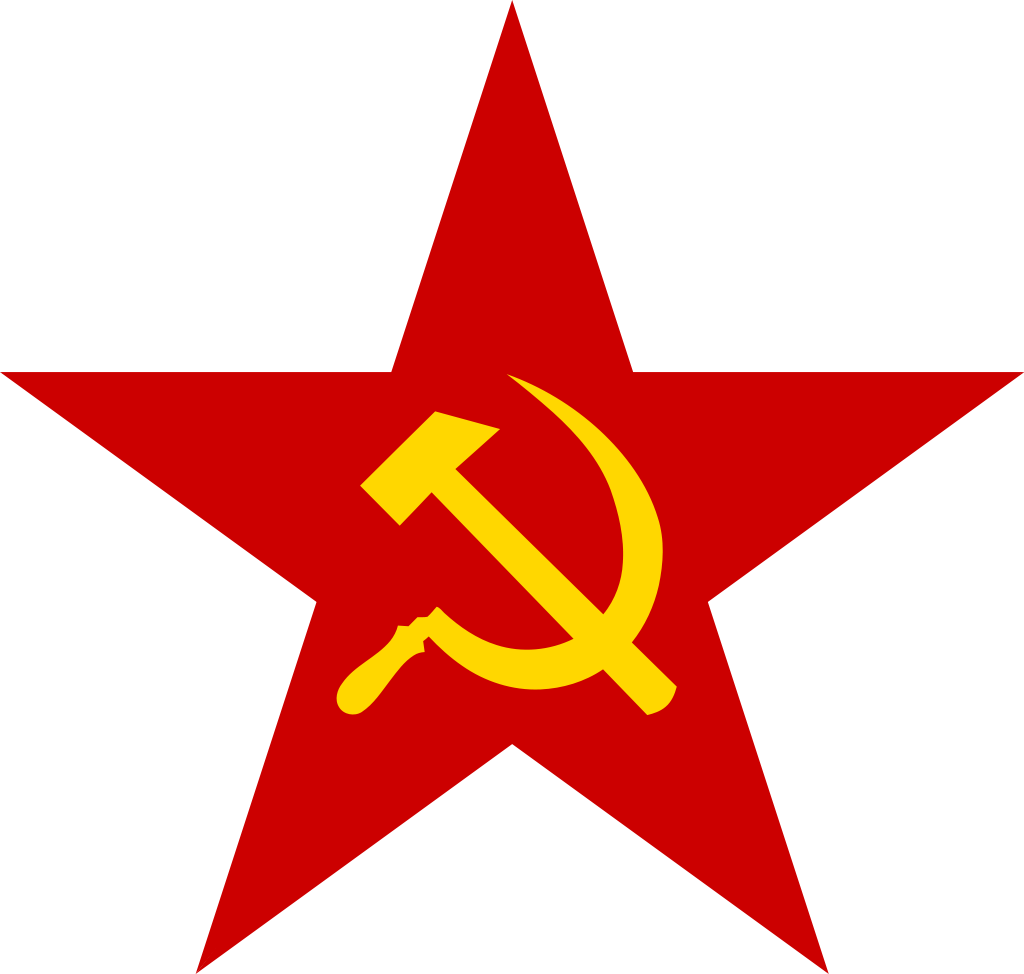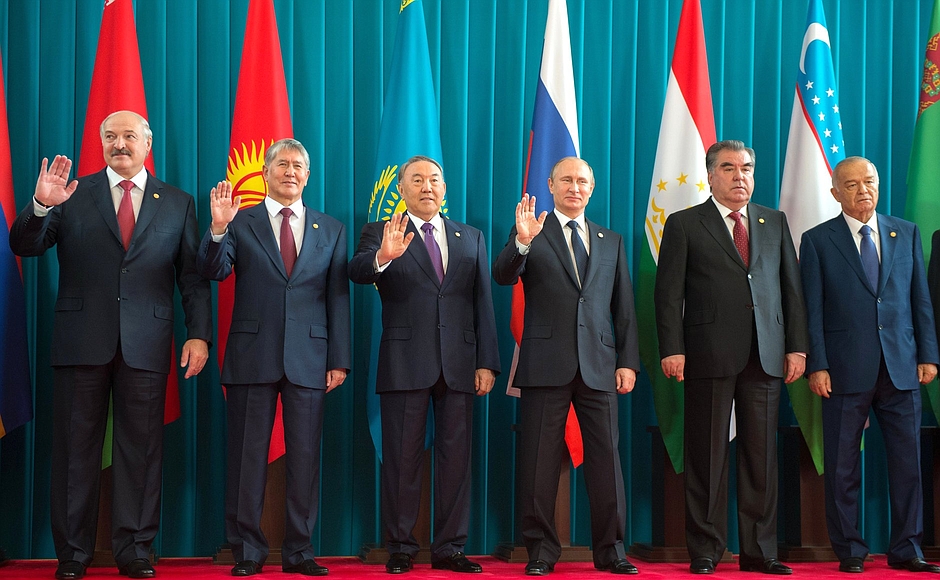Stamp: Stalin and Mao Tse-tung (Reprint) (China, Peoples Republic - Northeast Lib. Area 1955)
Stalin and Mao Tse-tung (Reprint) (China, Peoples Republic - Northeast Lib. Area 1955)
10 January (China, Peoples Republic - Northeast Lib. Area ) within release Memorial of Signing Sino-Soviet Treaty of Friendship goes into circulation Stamp Stalin and Mao Tse-tung (Reprint) face value 2,500 Chinese dollar
| Stamp Stalin and Mao Tse-tung (Reprint) in catalogues | |
|---|---|
| Michel: | Mi: CN-NE 198II |
| Stamp Number: | Sn: CN 1L176R |
Stamp is horizontal format.
Reprints are much more common than originals. They were prepared and put on sale by the Philatelic Agency in order to supply stocks of exhausted issues for collectors and were not valid for postal use. Paper of originals appears bright under ultraviolet lamp. That of reprints looks dull.Also in the issue Memorial of Signing Sino-Soviet Treaty of Friendship:
- Stamp - Stalin and Mao Tse-tung (Reprint) face value 2,500;
- Stamp - Stalin and Mao Tse-tung (Reprint) face value 5,000;
- Stamp - Stalin and Mao Tse-tung (Reprint) face value 20,000;
Stamp Stalin and Mao Tse-tung (Reprint) it reflects the thematic directions:
Communism (from Latin communis, 'common, universal') is a left-wing to far-left sociopolitical, philosophical, and economic ideology within the socialist movement, whose goal is the creation of a communist society, a socioeconomic order centered around common ownership of the means of production, distribution, and exchange that allocates products to everyone in the society based on need. A communist society would entail the absence of private property and social classes, and ultimately moneyand the state (or nation state).
A dictator is a political leader who possesses absolute power. A dictatorship is a state ruled by one dictator or by a polity. The word originated as the title of a Roman dictator elected by the Roman Senate to rule the republic in times of emergency. Like the terms "tyrant" and "autocrat", dictator came to be used almost exclusively as a non-titular term for oppressive rule. In modern usage, the term dictator is generally used to describe a leader who holds or abuses an extraordinary amount of personal power.
Famous People refers to the fame and public attention accorded by the mass media to individuals or groups or, occasionally, animals, but is usually applied to the persons or groups of people (celebrity couples, families, etc.) themselves who receive such a status of fame and attention. Celebrity status is often associated with wealth (commonly referred to as fame and fortune), while fame often provides opportunities to make money.
A head of state (or chief of state) is the public persona that officially represents the national unity and legitimacy of a sovereign state. In some countries, the head of state is a ceremonial figurehead with limited or no executive power, while in others, the head of state is also the head of government. In countries with parliamentary governments, the head of state is typically a ceremonial figurehead that does not actually guide day-to-day government activities and may not be empowered to exercise any kind of secular political authority (e.g., Queen Elizabeth II as Head of the Commonwealth). In countries where the head of state is also the head of government, the president serves as both a public figurehead and the actual highest ranking political leader who oversees the executive branch (e.g., the President of the United States).



